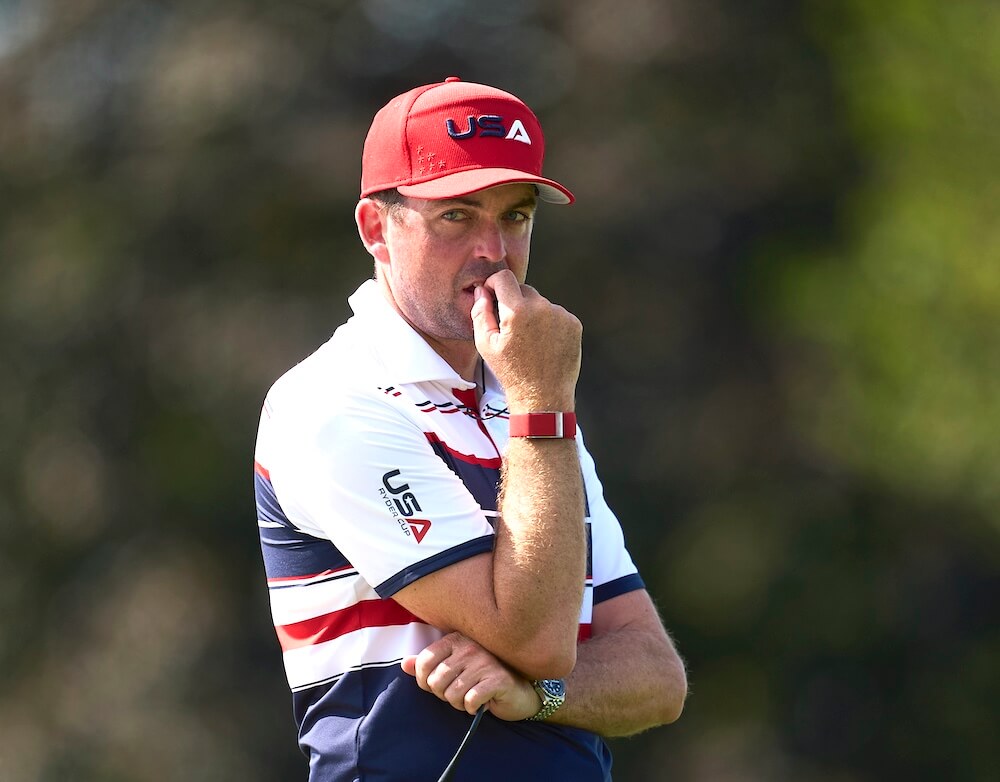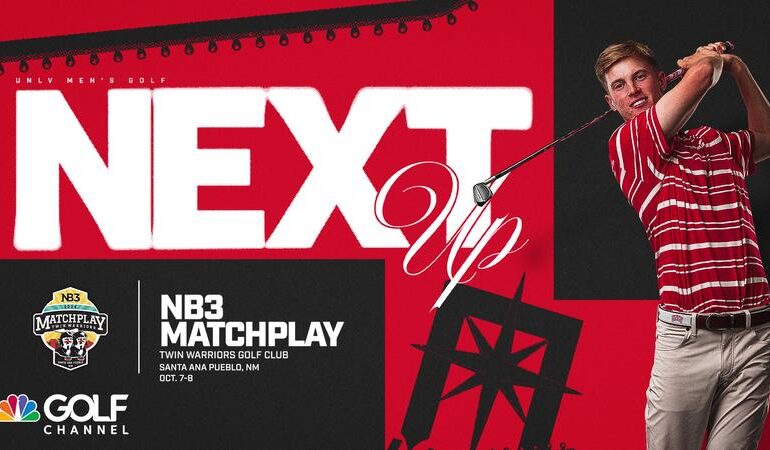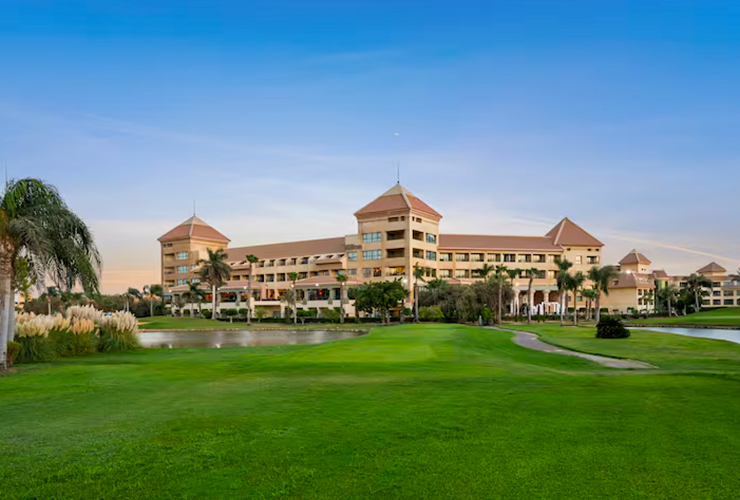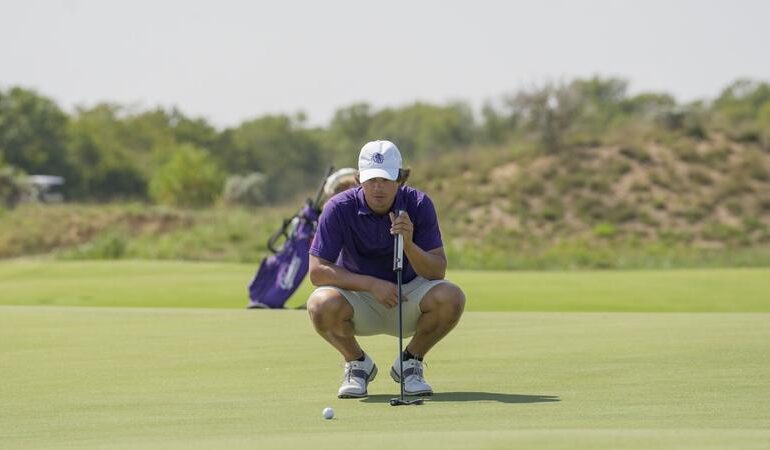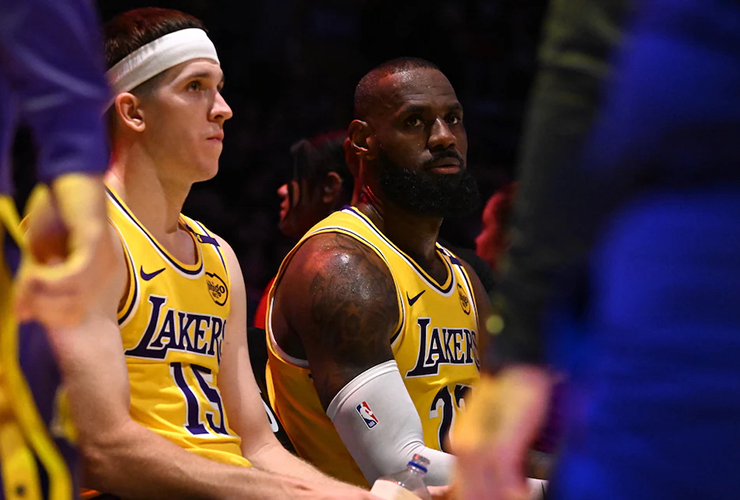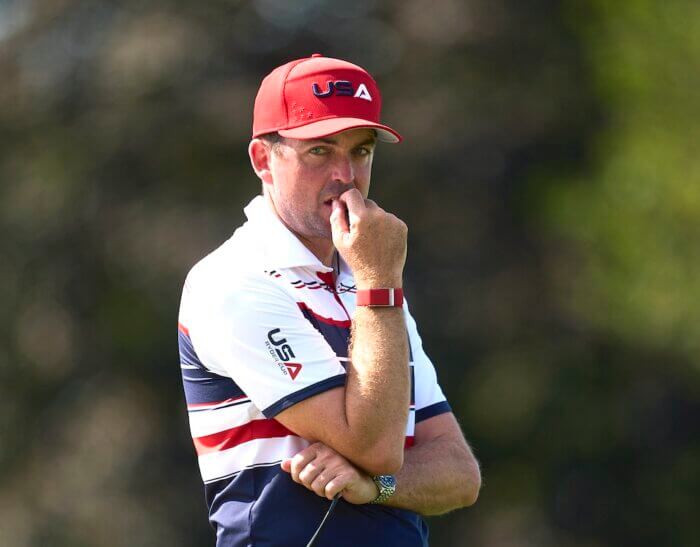 U.S. captain Keegan Bradley didn’t have enough answers for the Europeans. Mateo Villalbal, Getty Images
U.S. captain Keegan Bradley didn’t have enough answers for the Europeans. Mateo Villalbal, Getty Images
Editor’s note: “In Case You Missed It” is a GGP+ feature that highlights a story from Global Golf Post‘s Monday magazine.
In the immediate aftermath of the Ryder Cup at Bethpage Black and with the European celebration reaching full throttle, the raw emotion was painted on the face of U.S. captain Keegan Bradley and dripping from his words.
“I’ve got a real weird relationship with this tournament. A lot of heartbreak,” Bradley said.
He was speaking for more than just himself.
Why does the Ryder Cup seem so hard for the Americans, who have lost 11 of the last 15 events and, more to the point, what can be done to change it?
The challenge facing the U.S. Ryder Cup effort goes beyond finding the right captain. In fact, there is a reasonable case to be made that Bradley deserves another chance should Tiger Woods, the presumed pick to captain the U.S. team in 2027 in Ireland, decide to take a pass.
If it’s not Woods or Bradley again, Brandt Snedeker, Webb Simpson and Stewart Cink are possibilities. What the Americans need is a Mike Krzyzewski but they haven’t found that person yet.

The most consistent thing about the American approach to the Ryder Cup is how regularly the U.S. seems to lose. The Americans need what the Europeans have – a singular, unwavering vision underpinned by an organizational structure committed to making those three days every two years its talisman.
Study what the Europeans have done so well and copy it. They have made the Ryder Cup an every-day job. There is no guarantee for success – Pádraig Harrington’s 2021 captaincy resulted in the most lopsided loss in modern Ryder Cup history – but developing and following a consistent plan and vision is a start.
The U.S. team needs to find its Paul McGinley and its Luke Donald. It’s a compliment to those two gentlemen that the American equivalents don’t immediately jump to mind.
Consider the things McGinley said in the days after Europe’s latest victory, ticking off advantages the visitors developed for themselves. The European team that came to Long Island was constructed over decades, the Ryder Cup culture ingrained, not over the last few months on a points list.
From the brilliant video capturing the voices of every European player who had won a Ryder Cup on the road through Donald’s attention to detail in everything from how to structure the pairings to the fragrance of the shampoo, the Europeans were locked in.
The Europeans spent their money on the team, not on the players. The Americans got $500,000 apiece (it will go to charity, most players said) while the Europeans invested in the team experience. It is an ongoing investment, McGinley said, layering on what has been done before, intentionally improving the experience for the players.
Did that make the difference at Bethpage? It certainly didn’t hurt.
When Shane Lowry said his putt on the 18th hole that retained the Ryder Cup was the greatest moment in his golf career, bigger even than winning the Open Championship at Royal Portrush, it seemed genuine.
It can’t be said enough that the Europeans were brilliant the first two days at Bethpage. They put on a master class in team golf and a putting display that almost defied belief, effectively winning before Sunday dawned. If this was not the best European Ryder Cup team ever, it’s on the short list.
There is something to the narrative that the Ryder Cup means more to the Europeans than it does to the Americans. That doesn’t mean the Americans don’t care about the Ryder Cup – the looks on their faces and the body language Sunday evening illustrated the disappointment – but the emotional connection runs deeper for the Europeans.
Creating that takes more than naming a new captain every two years. When Shane Lowry said his putt on the 18th hole that retained the Ryder Cup was the greatest moment in his golf career, bigger even than winning the Open Championship at Royal Portrush, it seemed genuine.
Would an American player, particularly a major champion, have said the same thing?
Two years ago in Rome, still in the glow of a European victory, Rory McIlroy declared the intention to win on American soil and slapped the table for emphasis.
No American slapped the table Sunday evening but, in the same way the Europeans spent two years pointing toward Bethpage, the U.S. team has the opportunity to flip the script at Adare Manor. It will be the ultimate Ryder Cup opportunity – to beat what is sure to be another powerhouse European team on the road in Ireland.
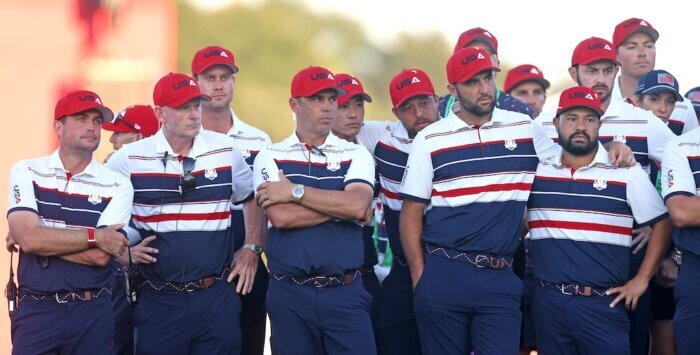 A dejected Team USA Carl Recine, Getty Images
A dejected Team USA Carl Recine, Getty Images
The Americans need to be working on Adare Manor now that PGA of America officials have hopefully finished their public apologies for the crowd behavior at Bethpage. Don Rea, the PGA of America’s president, sounded tone deaf in the comments he initially made minimizing the crowd behavior, and a report that he was doing karaoke Saturday night while the controversy swirled reinforced the perception. In the days following the matches, PGA of America CEO Derek Sprague struck a proactive stance while Rea issued a mea culpa for a distraction that added to the Americans’ difficulties.
The Ryder Cup kettle never comes off the boil in Europe and it needs to be the same way here. Flip the European script and produce a video of former players who have lost overseas and have them use the disappointment as emotional fuel for the next team.
Do a deep dive on what has worked and what hasn’t worked the last four years. Find the American version of Edoardo Molinari, the data genius who seems to have cracked the Da Vinci Code.
Bradley seemed to go with his gut when he rolled out the Collin Morikawa-Harris English pairing twice in foursomes or else the analytics were off. Captains are there to make the tough decisions and instinct often trumps analytics. Bradley did what he thought was right and it didn’t work.
Make going to Adare Manor a passion play the way the Europeans did at Bethpage. They did their best to make the crowd work to their advantage.
The same can be said of the course setup. Minimizing the rough nullified one of Scottie Scheffler’s advantages and turned it into a battle of wedge play. There was nothing they could do about the softness of the greens, and the anticipated calamities at the Black course never materialized.
Those decisions made it harder on the American team but Bradley is not the reason the Americans lost. The Europeans were better.
Make going to Adare Manor a passion play the way the Europeans did at Bethpage. They did their best to make the crowd work to their advantage. They pounced on the underdog angle again when the oddsmakers favored the Americans, though many insiders felt the Europeans were the favorites going in.
This European team was filled with big personalities with the games to match and, on the biggest stage, they embraced the moment. The Americans were different. They don’t project the way many of the Europeans do, and the top players didn’t deliver the way Europe’s stars did.
Not surprisingly, many Americans I talked with found themselves pulling for the Europeans. Some of it is the likability factor with this European team and some of it is the sense of entitlement that the Americans can’t shake.
Coaches and players love to say they learn more from their losses than from their victories. If that’s true, the Americans have added to what is a big book of lessons.
The question now is how will they apply those lessons?
Enough with the heartbreak.
© 2025 Global Golf Post LLC

